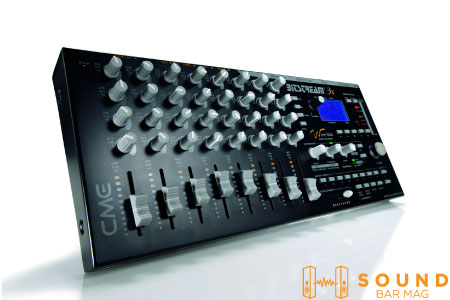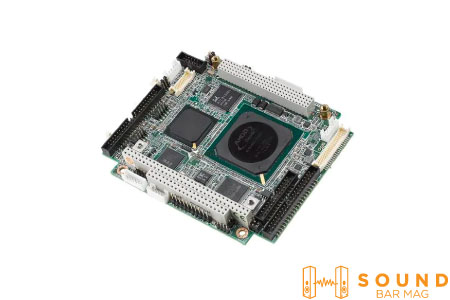If you ask the surround sound buffs, they will tell you that the audio component of a system should be more expensive than the video component.
While it may be a far-fetched statement, the fact can’t be ignored that the sound quality of your TV sets is going to have a huge impact on your overall experience.
Selecting the right sound system is never easy, especially when there are so many options in the market. Consider PCM and Bitstream as an example; both are popular and in competition.
To select one sound system among the many on the market, the consumer must be sure of which one is better.
Bitstream or PCM for Soundbar – Guide
Without wasting the time lets explain each topic in detail.
What is Bitstream?

Bitstream technology enables the transfer of the audio signals which are encoded from one format to another using a source. In this technology, the internal settings of the device are ignored and are sent to another more suitable audio processor.
Bitstream deals in binaries where data is transmitted in the form of 1s and 0s with the help of either cables or wirelessly. The data received is processed according to the binary information and converted to analog signals.
Once this process is complete, the data is transmitted in an amplified form. Various formats could be used in Bitstreams such as Dolby Digital, DTS, and TrueHD.
What is PCM?

PCM is another method used for decoding audio. Also known as the Pulse Code Modulation, this method uses old analog sounds and converts them into digital sounds. PCM mostly deals with uncompressed audio to run through its algorithm in the process of decoding.
PCM uses quantization levels to increase the amplitude whereas, in LPCM (a variation of PCM known as Linear Pulse Code Modulation), a liner quantization level is used. This method of audio decoding can work with analog and digital sounds which makes PCM unique.
What is the Difference Between PCM and Bitstream?
Although both PCM and Bitstream conduct the same procedure, there are certain differences among them. To begin with, the device used for decoding in both cases is different as Bitstream uses the AV receiver whereas PCM does not.
PCM relies on the player in question to conduct the decoding, however in Bitstream, the receiver is responsible for the decoding. When it comes to the coaxial and optical settings, PCM sends a two-channel signal which is not the best option to transmit. In comparison, Bitstream sends a 5.1 signal which helps the transmitter overcome the bandwidth problem.
Unlike the Bitstream technology, PCM allows the users to benefit from the secondary audio. Secondary audio would be compromised when Bitstream is being used whereas PCM is well-able to handle background noises embedded with the primary audio.
PCM might use a large amount of data but ensures that the data obtained by the AD converter is raw. This can increase the sound volume because the data is not coded twice through the source. The usage of raw data enables enhanced sound quality and a greater sonic experience.
PCM Vs Bitstream: Which One is Better?
If we talk about PCM, the sound quality of this soundbar is amazing. Due to the raw data signals, not only does PCM provide an excellent sonic experience but also enables the user to enjoy the secondary sounds in the background.
While using PCM means depending heavily on the player to decode the data, there are fewer lags and the process is faster. The receiver is not doing most of the work but the player is which means that the user has better access to high-quality sound.
Although it is tempting, PCM does have the disadvantage of relaying a two-channel signal which either requires a coaxial or a digital optical. PCM can work with digital data as well as analog data which makes it more compatible with home devices.
Moving on to Bitstream as our next option, we will now explore the advantages of using this technology. Bitstream uses compressed and coded data which is not raw but once processed, the quality of the sound may be better than PCM. The compression of the audio may cause Bitstream to lose some of its quality and high volume may be compromised.
Unlike PCM, Bitstream allows the receiver to do most of the work instead of the player. In case the receiver is high quality, the sound output would be ideal. Bitstream does not support secondary audio which is lost during the compression and the users might miss out on the details of the auditory experience.
As far as bandwidth is concerned, Bitstream provides an option of a 5.1 signal instead of a two-channel signal through a coaxial or digital optical. It all comes down to the quality of the receiver and the player that you possess. If your device has a better player, the ideal option should be PCM, but if the receiver is of high quality, then Bitstream is the better option.
Related Posts:
- PCM VS Passthrough Soundbar [Detailed-Guide]
- PCM Audio VS Dolby Digital – Comparison
- Bitstream VS PCM – Which one is Better?
- PCM or Raw for Soundbar – [Detailed-Guide]
- Is PCM Better than Dolby Digital? [Detailed-Guide]
- PCM vs Dolby Digital Sound Bar – Which One is Better?
Frequently Asked Questions (FAQs)
Can You Differentiate the Two Systems by Listening Solely to the Audio?
Unless one is listening for the secondary sounds very closely, one cannot tell the difference between the two technologies based on the sound alone.
Can You Switch Between the Settings from PCM to Bitstream on the Same Device?
Yes, Bitstream and PCM settings can be changed by simply going to the options and changing the mode of decoding.
Which Option is Better if You Do Not have an AV Receiver?
A: Since the player is responsible for the decoding in the PCM, it would be the better option to use in the absence of an AV receiver.
Read also: Best Settings for LG Sound Bar
Conclusion
Both PCM and Bitstream provide similar functions with small differences. The decision of selecting the right sound system should rely on whether your player is of better quality or your receiver.
PCM seems to have an upper hand when it comes to secondary audio as well as the fact that it deals with digital and analog data simultaneously.
Also read: Best Settings for VIZIO 5-1 Soundbar

Mia Evelyn is a soundbar specialist and she love to test and review different soundbar brands. She shares her neutral and in-depth reviews through the Soundbar Mag.